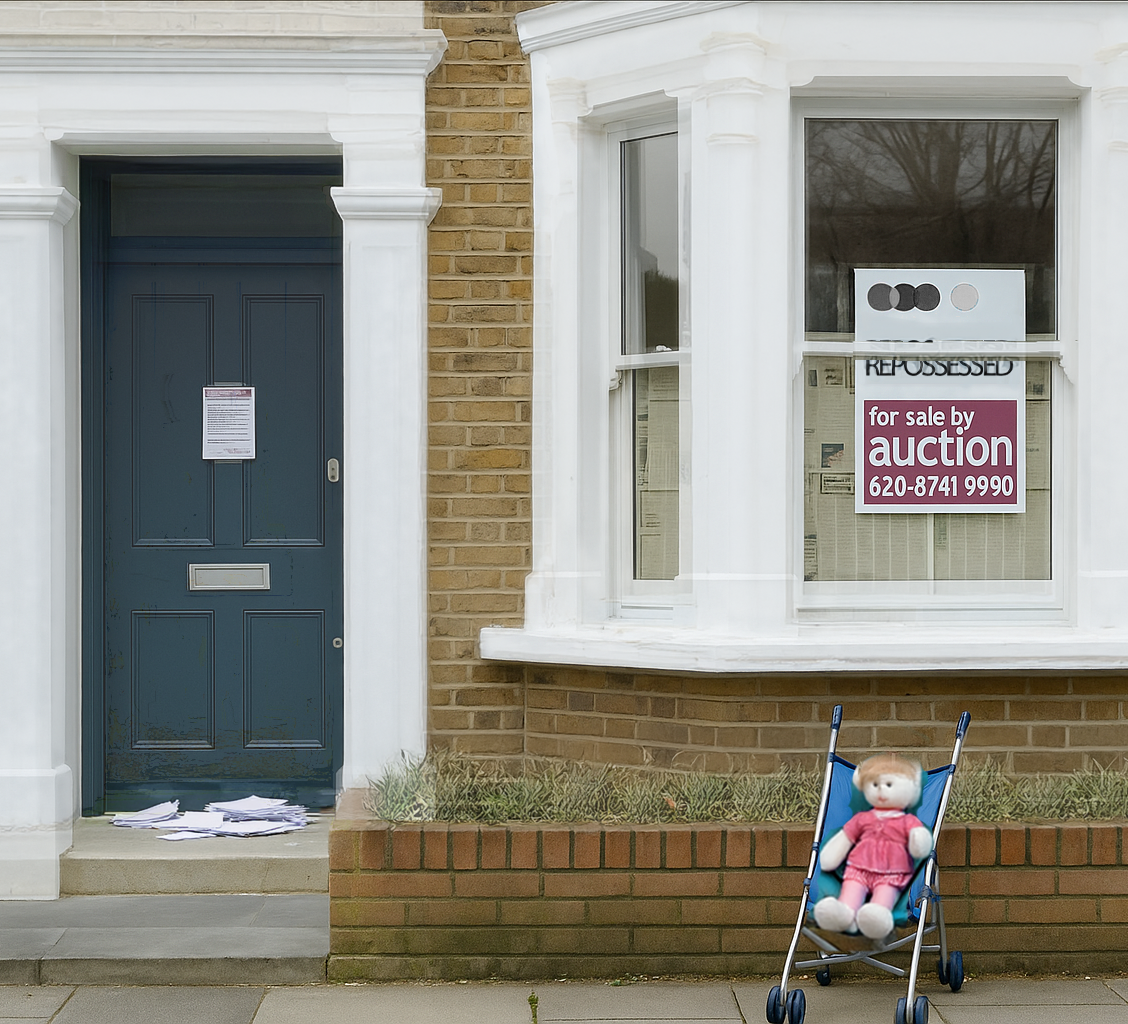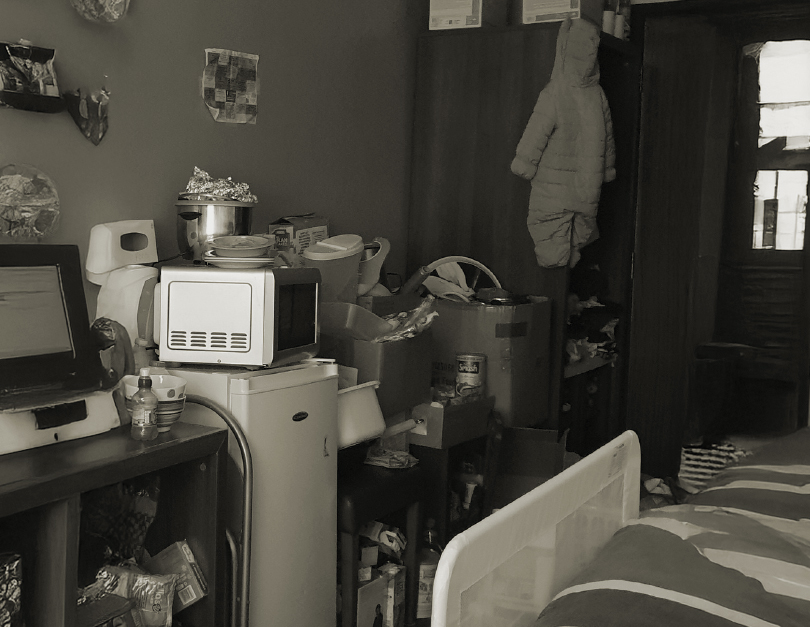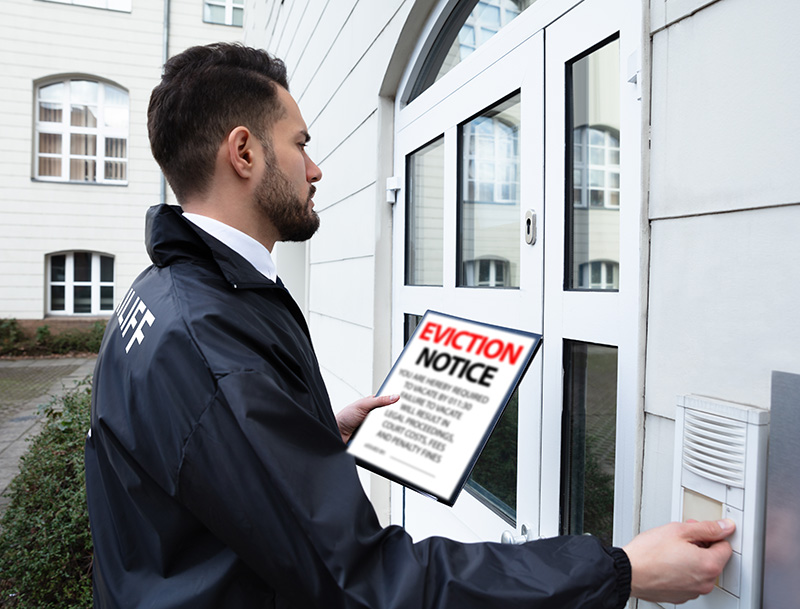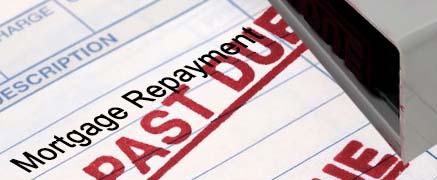 If you’re behind on your mortgage payments, your mortgage lender can apply to court for a possession order. This usually happens after 3 months of missed payments but it cann be longer.
If you’re behind on your mortgage payments, your mortgage lender can apply to court for a possession order. This usually happens after 3 months of missed payments but it cann be longer.
First, your mortgage lender will contact you about your arrears and try to find a repayment plan so that you don’t lose your house but if you’re unable to come to an agreement, they will then begin repossession proceedings. Before they do this, they must provide you with a list of outstanding payments arrears and also outstanding mortgage.
Next, the Court will send paperwork for the date, time and place for the hearing and also clarify any outstanding mortgage and debts.
Once this hearing has taken place, they will then decide whether you can stay in the property or whether you have to leave.
The court will make its decision on the legal right of the lender to reclaim its money and whether due process has been followed. It does not consider the practical or emotional neeeds of the home ‘owners’ (mortgage holders).
After a possession order is granted, you will typically have 14 or 28 days to vacate the property. If leaving within this timeframe would cause you exceptional hardship, you might be granted up to 42 days (6 weeks).
Types of Possession Orders:
- Standard Possession Order: The most common type of possession order, it usually requires you to leave the property within 14 or 28 days.
- Suspended Possession Order: This type of order allows you to stay in the property as long as you meet the conditions outlined in the order (e.g., paying rent or adhering to specific terms).
- “Exceptional Hardship“: If you can demonstrate that leaving within the initial 14 or 28 days would cause you exceptional hardship, you can apply to the court for a longer period, potentially up to 42 days. Examples of exceptional hardship include serious illness, disability, or having young children.
Bailiff Warrant for Possession:
If you fail to leave by the date specified in the possession order, your landlord can apply to the court for a warrant for possession, which allows them to evict you with the help of bailiffs.
Some councils are reported as advising people to wait to be evicted by the bailiffs so that they are deemed ‘involuntary homeless’ and given priority on a council housing waiting list however if a bailiff evicts you, your furniture and belongings will generally need to be removed from the property.The bailiff will probably ask you to remove your belongings, and may watch while you do so. If you don’t remove your belongings, the bailiff may secure the property with you not present, and you will need to arrange to collect them later. You may also be charged for storage or removal if you don’t collect them promptly.
If you wait for a bailiff to evict you and you do not have any alternative accomodation, you may find your-self housed in temporary accomodation. For more details of types of temporary accomodation and ways to aavoid being placed in temporary accodoation, please see Stop Repossession To Avoid Being Made Homeless
Ongoing Repossession Costs
You can still be charged interest on what you owe until your home is sold.
Your lender must take care of the property until it is sold – they must deal with emergency or essential repairs and may also undertake basic maintenance work but the mortgage holders are liable for the costs of any repair or maintenance until the property is sold.
The charges will usually be added to what you owe.
When repossessed property is sold
Your lender uses the money from the sale to repay what you owe them.
This includes the:
- outstanding mortgage debt
- lender’s legal costs
- estate agent or auction house fees
- bills for repairs and maintenance
Any money left is used to pay off any other debts secured on your home.
The lender must then pay any money left over to you.
If the sale does not cover your debt, you will still owe money to your lender or mortgage indemnity insurer unless they agree to write off the debt.
Selling Your House To Stop Repossession
Lenders often use traditional auctions to sell repossessed property for the speed and certainty they provide but any type of auction that has a short bidding window or requires completion in 28 days typically only reaches 70% of the estimated market value because they exclude most buyers due to the limited options to bid and because the completion rules mean they are only open to cash buyers.
Unless there is substantial equity tied into the property, the sale price may not be enough to cover the loan, accrued interest, legal fees, auction costs, the lender’s legal costs and repair costs.
It is normally better to stop the repossesion order by selling the property yourself rather than do nothing and let it be repossessed. By doing so, you can avoid many of the added costs and use a different method of sale to get a better price.
However, lenders may impose strict schedule deadlines for the completion or refuse to authorise a sale which is not secured.
That’s where a quick sale property company like National Residential come in. We specialise in selling and completing in timescale lenders will accept and we secure our buyers so we also provide the reliability lenders demand but because our bidding window is open 24/7 for 28 days and we allow 56 days to complete, we do not restrict buyers and our sales typically achieve 85-90% of the estimated market value.
For more details of our processes and the benefits, please see our article ‘Should You Sell Your Home To Stop It Being Repossessed‘
The short version is: We can sell your house and complete within a short timeframe for more money than letting your lender repossess your property to arrange a sale. There is more liklihood of money being leftover after the mortgage and the fewer added costs have been repaid. You can use this money to move into a new home. We can even provide you with an interest free cash advance based on the money you will receive.
Contact us today to find out what we can do for you. The faster you act, the more time you will have to stop repossession.

 As part of our series of articles on
As part of our series of articles on 

 What Happens If You Can’t Pay Your Mortgage?
What Happens If You Can’t Pay Your Mortgage? WARNING
WARNING
 The Online National Residential Agency: Best Price Possible & Quickest Sale - guaranteed
The Online National Residential Agency: Best Price Possible & Quickest Sale - guaranteed




